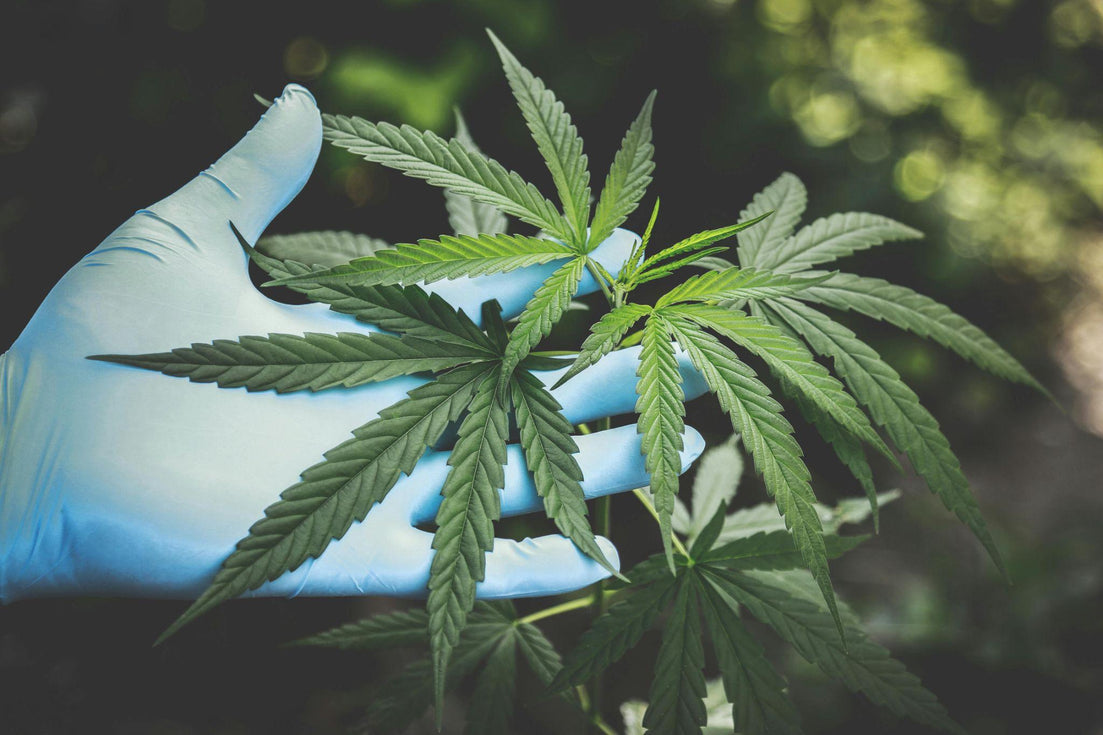Your cart is currently empty.

Understanding the nuanced differences between THCa and Delta 9 THC is essential for anyone seeking to harness the therapeutic potential of cannabis. This blog post will provide a comprehensive examination of the distinct characteristics and physiological impacts of THCa and Delta 9 THC, two cannabinoids essential for anyone wishing to benefit from cannabis' therapeutic potential.
We'll investigate the psychological impacts of Delta 9 THC, a compound renowned for its capability to modify consciousness and emotion. Simultaneously, we'll explore THCa - a non-psychoactive cannabinoid found primarily in raw cannabis that offers significant health benefits without inducing a 'high'.
Furthermore, you'll learn about the decarboxylation process where THCa undergoes conversion into Delta 9 THC when heated. We also touch on important legal aspects surrounding cannabinoids purchase and quality assurance measures employed by manufacturers.
Finally, we will discuss various products as natural alternatives for managing symptoms such as pain or anxiety. Understanding how to customize dosage according strength required can help optimize your cannabis experience while interacting safely with your endocannabinoid system.
Understanding Delta 9 THC and Its Therapeutic Potential
Delta 9 THC is the stuff that makes you feel high when you smoke weed. But did you know it also has some pretty cool medical benefits?
The Psychoactive Effects of Delta 9 THC
Delta 9 THC interacts with your body's endocannabinoid system, which can lead to some trippy effects like altered senses and mood changes. Just don't forget where you put your keys.
Medical Benefits Associated With Delta 9 THC
Aside from its recreational use, Delta 9 THC has been linked to numerous medical benefits such as reducing anxiety, alleviating chronic pain, managing glaucoma and relieving migraine symptoms. Plus, some studies suggest it could even help with diabetes risk factors. Who knew getting high could be so helpful?
THCa: The Non-High Cannabinoid
THCa is the cool kid in the cannabis world - non-psychoactive, but still packed with therapeutic potential. It's like the responsible friend who always has your back.
The Marvelous Properties of THCa
THCa is a boss at inhibiting COX-1 and COX-2 enzymes, which can help reduce inflammation and provide relief for conditions like arthritis and Crohn's disease. Plus, it may have neuroprotective qualities, making it beneficial for patients with neurodegenerative diseases like Parkinson's and Alzheimer's.
THCa's Therapeutic Benefits
- Pain Relief: THCa has analgesic properties, which means it could help alleviate pain without causing any mind-altering effects.
- Inflammation Reduction: By inhibiting COX-1 and COX-2 enzymes, THCa can help manage symptoms related to various inflammatory conditions.
- Aid Digestion: Consuming raw cannabis containing high amounts of THCa might improve digestion, which could be particularly useful for people suffering from digestive disorders such as Irritable Bowel Syndrome (IBS).
With non-psychotropic cannabinoids like THCa available on the market today, you can enjoy numerous health benefits while maintaining a clear head throughout your day-to-day activities. Before beginning any new supplement regimen, it is important to consult with a healthcare professional, especially if you are on prescription medications or have chronic illnesses.
Decarboxylation: Turning THCA into THC
Decarboxylation is just a fancy word for heating up cannabis to turn non-psychoactive THCA into the good stuff, THC. When you smoke or vape, this happens automatically. For edibles or tinctures, decarboxylation is a must to activate the THC.
How Decarboxylation Works
When you heat cannabis, the THCA's carboxyl group breaks off to enable THC to bind with your brain's CB1 receptors - facilitating a high. That's what gets you high.
So if you're looking to feel the effects of cannabis, make sure you're heating it up first. Otherwise, you'll just be wasting your time.
THC and Metabolism
THC doesn't just get you high - it might also help regulate your metabolism. Studies have revealed that individuals who regularly consume cannabis tend to exhibit reduced levels of fasting insulin, potentially implying improved carbohydrate metabolic activity and lower Body Mass Index (BMI).
Of course, more research is needed to fully understand how THC affects our bodies. But it's an exciting area of study that could lead to new treatments for a variety of conditions.
Legal Aspects & Quality Assurance Measures for Cannabis Products
Is it legal? It depends on whether the cannabis product is derived from hemp or marijuana. Hemp-based cannabinoids are generally legal under federal law in the United States, but marijuana-derived cannabinoids remain illegal at the federal level. Check your local laws before purchasing any cannabinoid product online or at physical stores.
Legal considerations regarding cannabinoid purchase
Some areas require a medical prescription to legally obtain these compounds. Remember that traveling across state lines with marijuana-derived products is still considered illegal by federal law even if both states have legalized its use. Stay updated about changes in cannabis legislation and regulations by following resources like NORML.
Quality assurance methods employed by manufacturers
Ensure you're buying quality-assured products by purchasing from reputable brands that provide third-party lab results. Manufacturers should use testing techniques such as GC and LC to determine the concentration of various cannabinoids in their products.
- Gas Chromatography: Separates components within a sample based on their volatility. GC allows analysts to identify specific compounds like Delta 9 THC or THCa.
- Liquid Chromatography: Uses liquids instead of gases as mobile phase making it suitable for analyzing non-volatile substances too.
Third-party lab results ensure transparency concerning what exactly is inside each product, offering peace-of-mind knowing there aren't any harmful contaminants while also confirming accurate cannabinoid concentrations.
Natural Alternatives for Managing Symptoms
Move over Delta 9 THC, there are new cannabinoids in town. CBD and THCa offer health benefits without the high.
Benefits of CBD
CBD can help with pain, anxiety, and insomnia. It's like a chill pill for your endocannabinoid system. Plus, it's anti-inflammatory, making it great for arthritis and multiple sclerosis.
A study published by Journal of Experimental Medicine shows how CBD suppresses chronic pain without causing analgesic tolerance in rodents.
Customizing Dosage
Not all doses are created equal. Start low and go slow to find your optimal dose. A study shows that full-spectrum extract is more effective at lower doses.
Consistency is key. Incorporate these natural alternatives into your routine for optimal results. Before you begin any new treatment plan, especially if already taking prescribed medications, be sure to consult a healthcare provider.
Ready to explore the world of cannabinoids? Unearth the vast array of potentials that are suited to your personal requirements and preferences. Mother Nature's got your back.
FAQs in Relation to Thca vs Delta 9 Thc
Delta 9 vs. THCA: Which is Better?
Delta 9 THC offers psychoactive effects, while THCa does not, but both have therapeutic benefits.
Is Delta 9 THC the Same as THCA?
No, they differ chemically and in their effects on users, despite both being cannabinoids found in cannabis plants.
Does THCA Turn into Delta 9 THC?
Yes, through a decarboxylation process, typically through heat exposure.
What's Stronger: THCA or THC?
THC is stronger than THCa in terms of psychoactivity, but for non-intoxicating health benefits, many prefer raw cannabinoids like THCa.
It's important to note that the illegal use of cannabis products and any negative side effects or dangers associated with their use should be avoided. Personal opinions or experiences using cannabis, CBD, Delta 8, and Delta 9 should be taken with a grain of salt and researched thoroughly before use.
For more information on the benefits and risks of cannabis use, check out CDC.gov.
Conclusion
THCa vs Delta 9 THC: Both offer unique therapeutic benefits, but one gets you high and the other doesn't - choose wisely.
When it comes to managing symptoms like pain, anxiety, and insomnia, cannabis products containing these cannabinoids can be a natural alternative worth considering.
Delta 9 THC is psychoactive and can provide pain relief and appetite stimulation, but make sure to consider legal aspects and quality assurance measures when purchasing.
On the other hand, THCa is non-psychoactive but has anti-inflammatory properties that can help with conditions like arthritis - just remember that it needs to be converted into Delta 9 THC through decarboxylation to be effective.
And if you're not into getting high, CBD products offer additional benefits without the psychoactive effects of Delta 9 THC.
So, whether you're a seasoned cannabis user or a newbie, customizing dosage according to strength required can help optimize results when using these natural alternatives.



